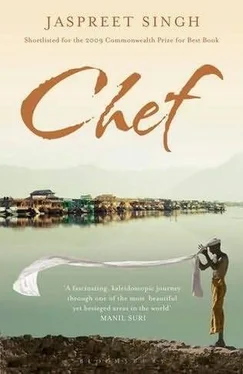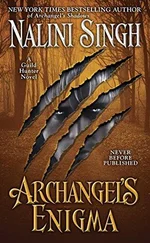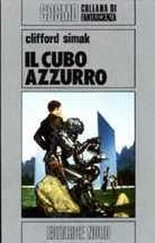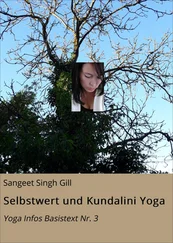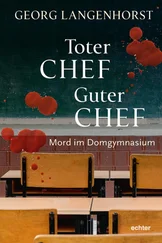The driver of the car told me later: Major, the moment the bridge exploded I felt as if my heart had leaped out of my chest. But I also felt the invisible hand of God protecting us. I cannot forget the roar, the rain of wood and metal and fire. The car started flying. Then booom, it fell. I kept driving. The General shouted (from the back seat): Tej. Tej. Fast. Faster. My foot was on the gas, hammering it. Look at this hole in the body of the car, Major. God gave us only a little hole in the rear, and a few damaged parts inside. God made me drive fast. Are you with me, Major?
Yes, yes, I said.
God is great, Major.
She is clean, I said to myself. Irem is clean.
In the kitchen the trout stared at me for many days. Fish can be cut any which way. So it is better than meat, I thought. No quarrel about halal or non-halal. Trout I had thought was the best way to have conversation with the enemy. But Sahib asked me to stop all conversation.
Outside, it kept raining against the window, corroding the cutlery inside. The rain mocked me, for many days rain lashed. The eyes of that fish mocked me. But. The inclement weather had a reverse effect on my cooking. The mushiness in the air prevented the drying. I sprinkled fresh coriander and roasted caraway seeds on the tender, moist fish. The orderly, who was my friend, delivered the tiffin-carrier in the hospital. He delivered the holy book as well. She did not send any message for me. But she had kissed the Qur’an, the orderly told me.
‘She refused to eat the fish, Major.’
‘Did she say something?’
‘The nurse was standing close to the bed and the enemy woman said (using signs and gestures) that she had no intention to eat for the next forty days.’
‘Why don’t you say it is Ramadan?’ I raised my voice.
‘Did I do something wrong, Major?’ he apologized.
‘No,’ I said.
‘Major,’ he said.
‘Please leave me alone.’
‘She said one thing else, Major.’
‘What?’
‘When she is eating normally she feels hungry around noon. But now that she is eating abnormally, I mean now that she is fasting, at noon she feels thirsty only.’
‘What else?’
‘That’s all, Major,’ he said. ‘Now I will go away.’
‘Yes,’ I said. ‘Don’t show me your face again.’
I see myself unable to sleep, waking up with a dry throat. In my dream I am hungry, I have not eaten for days and I am in a classroom in Pakistan and the teacher (who is eating a kebab) is angry with me. On the blackboard words are written in Urdu in thick chalk, I notice as the teacher walks towards my bench, holding a stick in his right hand. The sound of his boots approaching me is growing louder. Now we are standing face to face, his kebab breath gets trapped in my nostrils. The teacher is wearing a military uniform, medals on his breast. General President Musharraf? I ask. Open your palm, he says. What’s my crime? You are sitting next to a female student, he says. I turn my neck: the girl. I survey quickly her face. She is absolutely silent, her lips sealed tight. She is not eating. I feel sick to my stomach. Open your palm, he says. The General hits my palm with the stick. The girl shuts her eyes, her body shakes. The stick keeps hitting me over and over. Suddenly the girl starts laughing. Don’t laugh, I say. Don’t laugh at me, I request. Not here.
All through rain (and Ramadan) there were dinners. The kitchen grew very busy because of a stream of visitors who came to congratulate Sahib for having survived the explosion. The chief of security was suspended and four other officers responsible for the protection of the bridge were imprisoned. Many more local houses were raided to hunt the terrorists.
Gen Sahib had little time for himself. He was also preoccupied with a high-level court martial. The court martial would bring its own stream of officers to the residence. I found myself a bit stressed, sleeping barely four or five hours. The ADC instructed me to cook Punjabi karhi-chawal, mitha shalgum, and saag maki-di-roti for Brigadier Pash, the presiding officer of the court martial. Pash’s nickname was BapuGandhi; the Brigadier was renowned for his honesty and vegetarianism.
‘Here comes the famous Brigadier Pash.’ Sahib shook his hand in the drawing room.
From behind the curtain I overheard the conversation between the two men.
‘Is there an evidence?’
‘Not on paper -’
The glasses tinkled and plates clattered and spoons rattled, but I can’t forget the syllables of Gen Sahib’s crisp voice.
‘The man is innocent,’ he told the presiding officer. ‘Make sure his career is not stained.’
‘But, sir,’ said the Brigadier. ‘I am assuming the army wants to know. Even if we are not interested – the whole thing has been recorded on a spy camera. Three press reporters posing as arms dealers from the UK and the USA visited Colonel Chowdhry’s residence and offered him bottles of whiskey. If you are going to bribe me chutiya, the colonel told them, at least bribe me with 5 crore rupees and Blue Label. Black Label won’t do. Then there is the coffin scam -’
‘This is a set-up, Brigadier Pash,’ said General Sahib. ‘Don’t you see? Images these days can be manipulated by technology. There is no written evidence, no real evidence against him. The colonel would never sell our boys for the price of Blue Label.’
The civilian papers were filled with news of Col Chowdhry of 5 Mountain Division. He had been involved in several scams, the latest one being the coffin scam. The colonel had bought hundreds of aluminum coffins from an American company at 200 dollars apiece. He had charged the army 1800 dollars apiece. More dead Indian soldiers at the front meant more profits for the colonel and his politico friends in Delhi and Washington. One or two papers held General Sahib responsible for the coffin scam. But Sahib was innocent really. The colonel had taken advantage of Sahib’s trust. Despite that, Sir was trying to save the man.
‘Do keep him under a watch. But don’t start anything new. He is clean. Let him go.’
‘But, sir, are you asking me to lie?’
‘We must protect the morale of our army.’
‘If I lie, sir, I’ll feel bad. And if I tell the truth, I’ll feel bad. What should I do, sir?’
‘Nothing.’
‘Nothing, sir?’
‘Eat the food, Brigadier. Do you like the saag?’
‘Excellent, sir.’
It rained for thirty-nine days. Then it stopped and one night it started raining again. From the kitchen window I heard the sounds and inhaled the smell of falling leaves. During day the trees looked wet and bare and dead, but at night the pointed branches moved as if alive. Rain fell on the yellow lights of Alpha Mess and the Quarter Guard where the court martial was to take place. The trials didn’t mean much to me then, I am embarrassed to admit, not as much as sleep, and sleep was a rare commodity in the army.
Something happened in the hospital.
Irem found a strand of hair in the dinner I sent her a week before the Eid. The guards told me: The enemy woman wept uncontrollably, Major. The nurse had to give her a needle. The enemy took that strand of hair out of the bowl of dal, Major. She raised her hand high and held it in the light and looked at it like a detective and then she started weeping, Major.
I didn’t know what to do with Irem. While cooking, I listened to Chef Kishen’s German music. It went fast, then slow. Fast, and slow again. The notes swelled and shrank, and made me move deeper and deeper inside something beautiful. Then I was rising like a fish in a dead lake, the ripples spreading. During break I walked down to the hospital with the tape recorder in my kit. Troops were marching in the rain. They were marching on the muddy road, too, lined with military vehicles. Drops were dancing on the license plates. I did not care about my fears. It seemed natural to go to her. I stepped into the ward. She had fewer bandages and looked stronger sitting up in the metal bed, her head covered by the same scarf, and for the first time I realized that her features resembled the Bombay actress Waheeda. The same chiseled face, the same nose, the same cheeks. In Irem’s left hand there was a golf ball. She was concentrating on the ball. Outside the window rain was falling on bare trees. I figured the ball must have entered the room through the window. She was examining the ball’s dimples. Without moving her eyes she greeted me.
Читать дальше
Конец ознакомительного отрывка
Купить книгу
